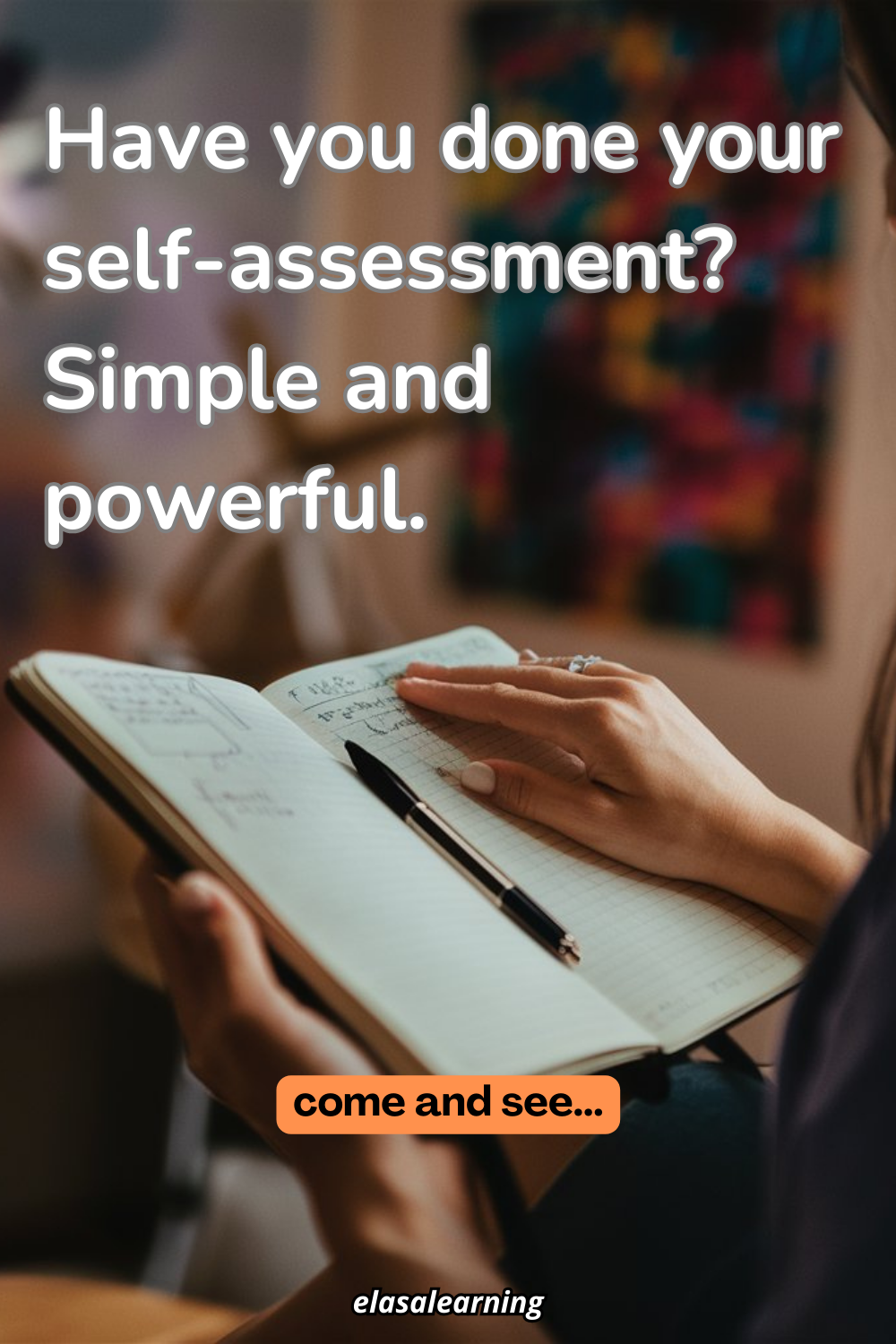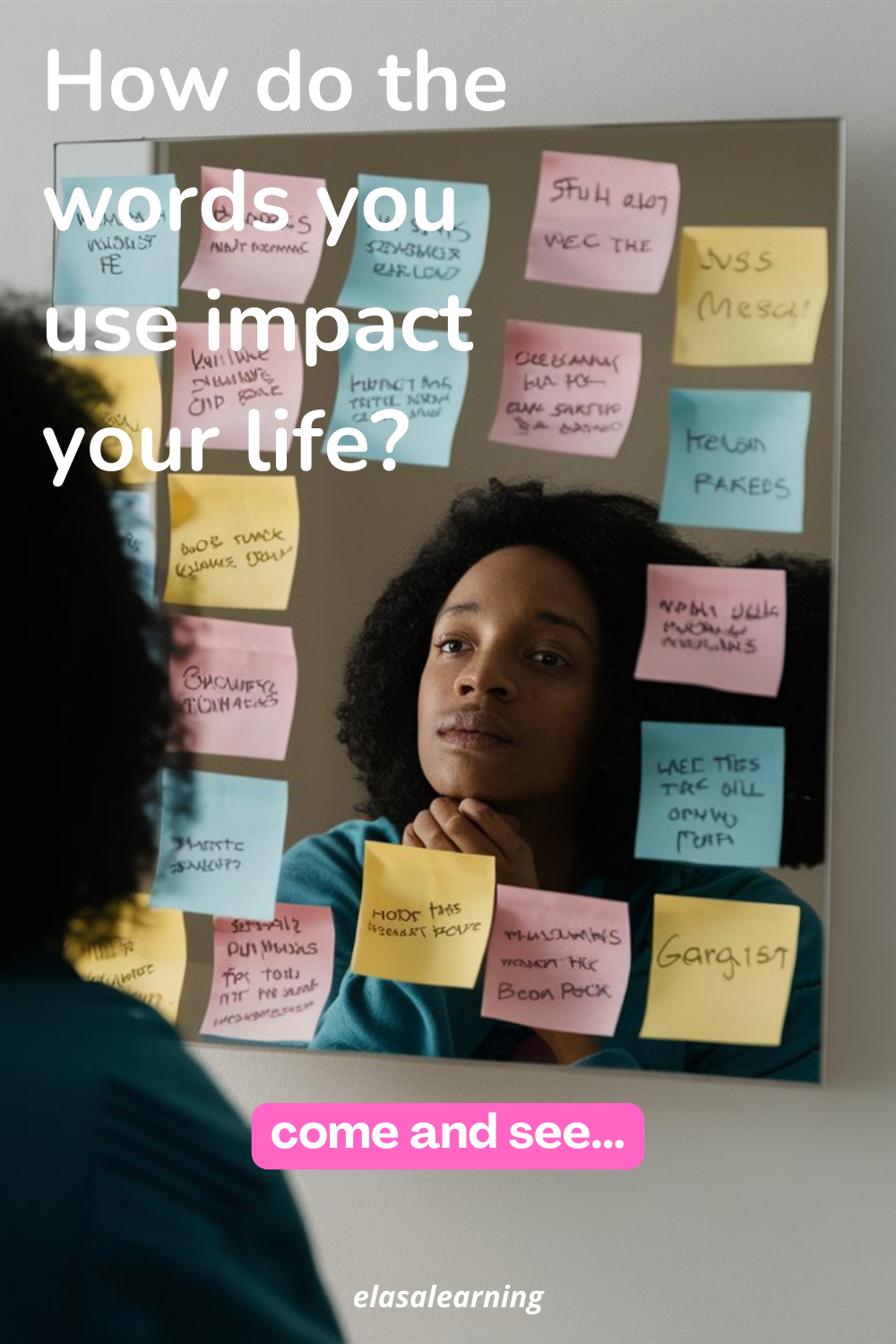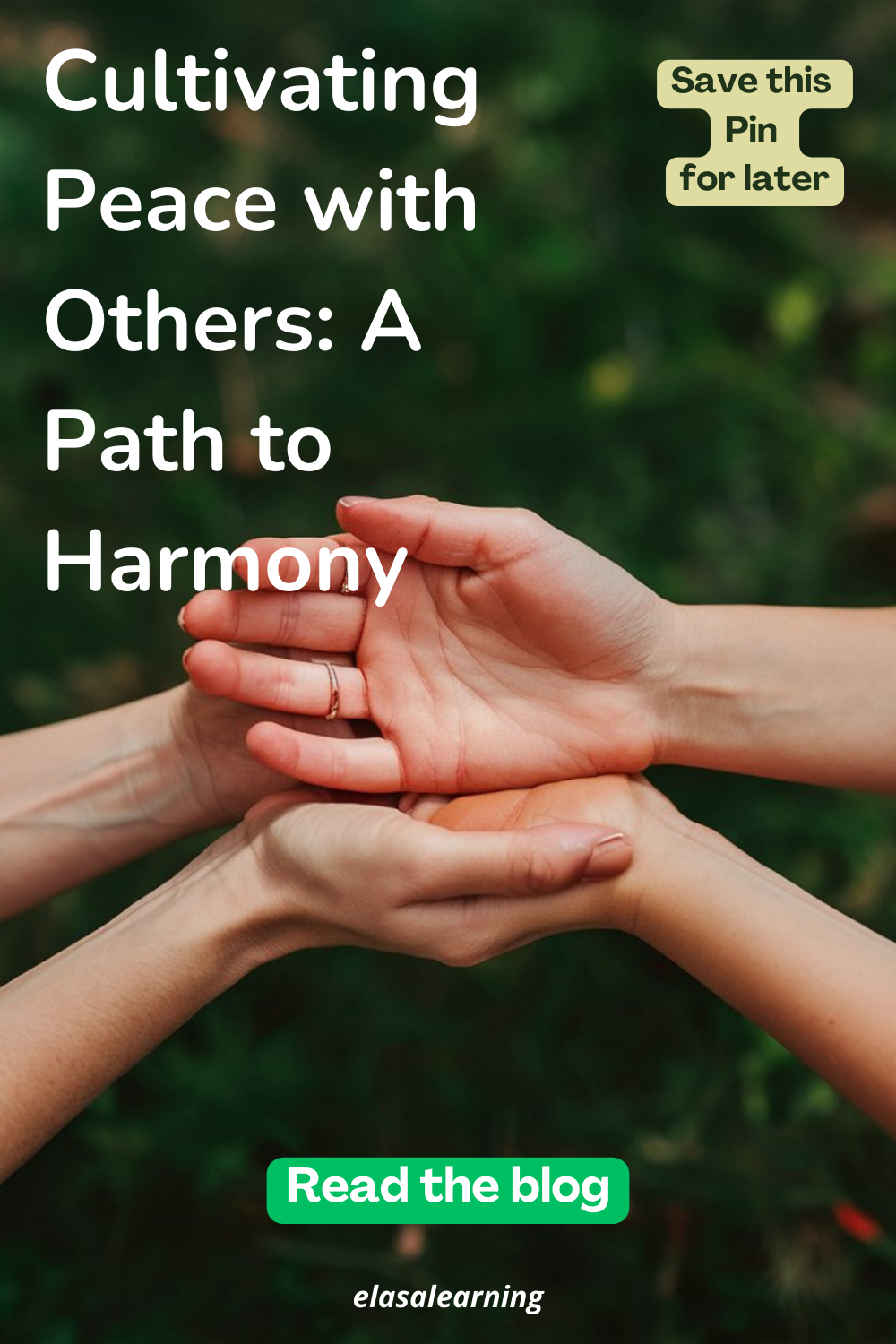
Have you done your self-assessment? Simple and powerful.
by ElasaLearning
We recommend helpful products in our articles.
The content on this site is not intended to be a substitute for professional advice, diagnosis, or treatment.
Self-assessment is a powerful tool for self-awareness and personal development. By allowing ourselves to look inward and reflect on our actions, thoughts, and feelings, we can identify our strengths and areas that need improvement. This process not only helps us grow but also empowers us to take better care of ourselves, promoting a more balanced and fulfilling life.

Focusing on what is good in our lives is essential for maintaining a positive and healthy perspective. It is often easy to get lost in daily difficulties and problems, but by directing our attention to the good things, we cultivate gratitude and optimism. This does not mean ignoring challenges but rather choosing not to let them dominate our worldview. The practice of gratitude can transform our way of seeing life and help us find joy in small things.

Analyzing our relationships is a crucial part of self-assessment. Our interactions with others reflect much about who we are and how we feel. By evaluating the quality of our relationships, we can identify behavior patterns that may need adjustment. This allows us to build healthier and more meaningful connections based on mutual respect and understanding.

Moreover, it is important to remember that self-assessment should be an ongoing process. It is not something we do once and are done with but rather a habit that we cultivate over time. By committing to this practice, we are constantly improving and adapting to life's changes. This makes us more resilient and prepared to face emerging challenges.

To put self-assessment into practice, set aside time weekly to reflect on your experiences. Write down your achievements, challenges, and feelings in a journal. Ask yourself what you did well and what you could have done differently. Identify at least one thing you are grateful for and one area in which you want to improve. This simple exercise can bring clarity and direction, helping you become the best version of yourself.

Focusing on what is good in our lives is essential for maintaining a positive and healthy perspective. It is often easy to get lost in daily difficulties and problems, but by directing our attention to the good things, we cultivate gratitude and optimism. This does not mean ignoring challenges but rather choosing not to let them dominate our worldview. The practice of gratitude can transform our way of seeing life and help us find joy in small things.

Analyzing our relationships is a crucial part of self-assessment. Our interactions with others reflect much about who we are and how we feel. By evaluating the quality of our relationships, we can identify behavior patterns that may need adjustment. This allows us to build healthier and more meaningful connections based on mutual respect and understanding.

Moreover, it is important to remember that self-assessment should be an ongoing process. It is not something we do once and are done with but rather a habit that we cultivate over time. By committing to this practice, we are constantly improving and adapting to life's changes. This makes us more resilient and prepared to face emerging challenges.

To put self-assessment into practice, set aside time weekly to reflect on your experiences. Write down your achievements, challenges, and feelings in a journal. Ask yourself what you did well and what you could have done differently. Identify at least one thing you are grateful for and one area in which you want to improve. This simple exercise can bring clarity and direction, helping you become the best version of yourself.
Recommended



